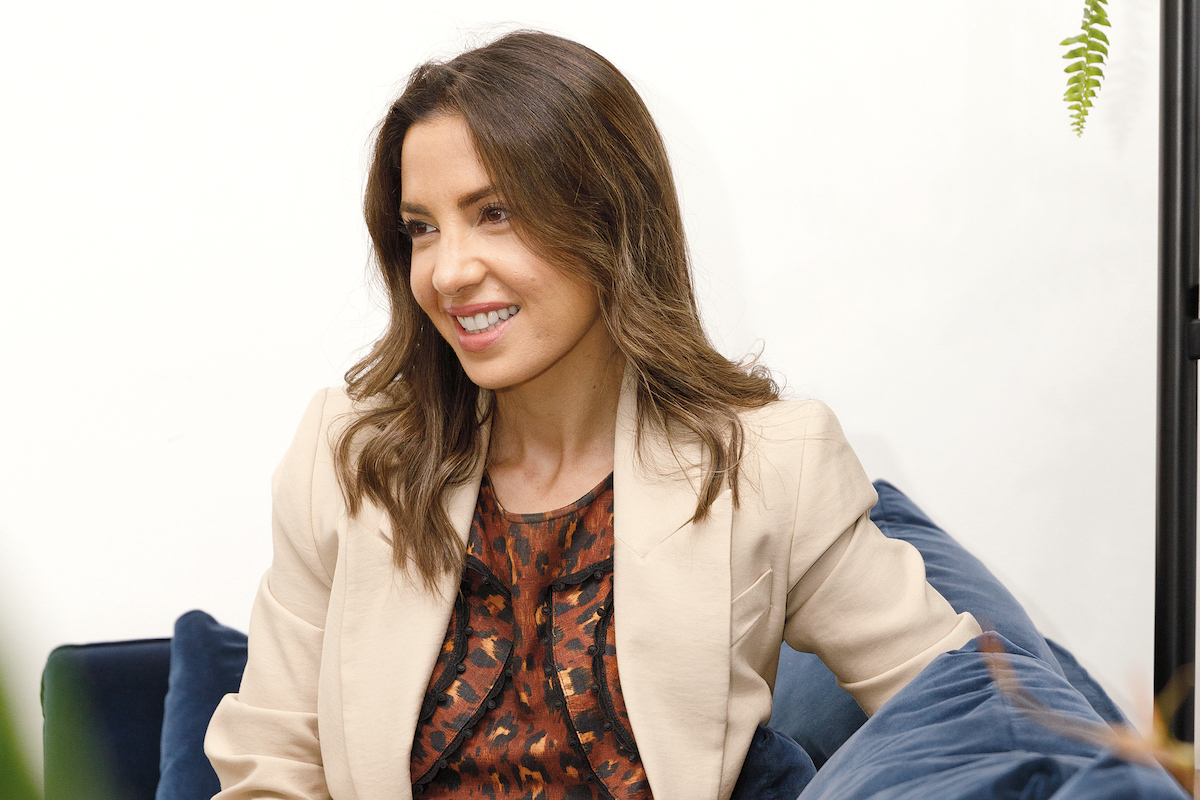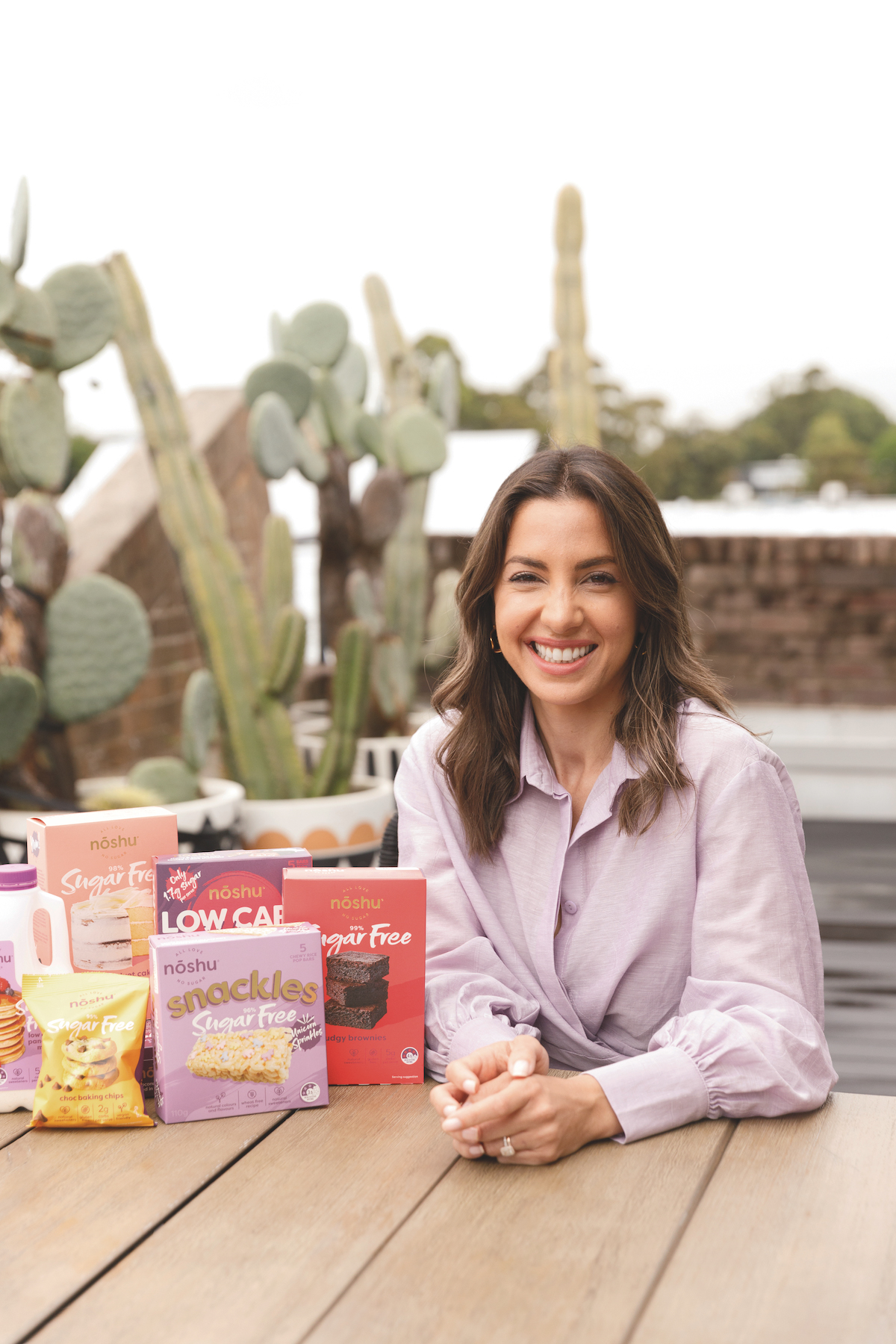When Rachel Bajada was a child, there was always a poignant moment during birthdays and Christmases when it was time to bring out all the cakes and sweets. Her grandmother and extended family members had type 2 diabetes and so were never able to indulge with the rest of the family. “It would end up being this bittersweet moment because half the people in the room couldn’t eat it or their blood sugar would go through the roof, and they’d have to inject insulin,” Rachel recalls.

“It just really wasn’t fun or inclusive for them at all.” Years later in 2013, at the age of 30, she recalled those memories as she sat beside Manly Beach in Sydney sipping coffee with her partner, as they tried to figure out a name for the low-sugar food business Rachel planned on starting. She envisaged an exciting range of low-sugar products ranging from brownies and doughnuts to cakes and snack bars – all with a much lower sugar content than traditional products, making them accessible for people who wanted or needed to cut down the amount of sugar in their diets.
The couple settled on the name Noshu (a play on the words ‘no sugar’). In fact, they liked the idea so much that Rachel immediately whipped out her phone and registered the domain online. “By the time we finished our coffee, we had our logo and our brand name,” she says.
Just the beginning
Today, the Noshu brand is known all across Australia, where Rachel and her team have established a strong position in the market with large-scale distribution of almost 30 products, with more in the pipeline. “All of these products need to appeal to many different consumers, so we’re constantly evolving as a brand to find more authentic ways to engage with a broad range of consumers,” says Reuben Crossman, Noshu’s Brand and Marketing Director.
“This is only the beginning of a bigger journey for Noshu and low-sugar snacking, as we are now seeing sugar consumption fast becoming a serious global health concern, and we’d love more people to understand that healthier snacking doesn’t have to be boring,” he adds.
Noshu fulfills a need that simply wasn’t being met in the market before, Rachel says. “There was just nothing out there that was quick or easy to eat and convenient to buy on the go that didn’t contain loads of sugar,” she says. “The only products that were available at that time were nasty protein bars made with artificial sweeteners such as sucralose and aspartame – ingredients that are really not that much better than sugar.
“Everything else claiming to be better for you was quite misleading, having a ‘no added’ sugar claim but still containing 50 per cent added sugar because it was made with dates, dried fruit or honey. So I just thought there’s a huge opportunity right here to create a range, not just for people like my diabetic family members, but also those like me who simply want to reduce their sugar intake.”
We go all the way with R&D to formulate products that almost everyone thought were impossible to make.
There are now some competitors who have alsomade a sincere effort to moderately reduce the sugar content in their products, Rachel adds, but none of them go as far as Noshu does. “They’re just dipping their toe in the water and trying to make it look like they’re doing something better,” she notes.
“But their products are still 20 per cent sugar by weight.” Noshu, by contrast, invests heavily in formulating recipes to make products with between two and five per cent sugar, without making any sacrifices when it comes to flavour. “We go all the way with R&D to formulate products that almost everyone thought were impossible to make.”
A strong base
The two main avenues for growth open to Noshu are new product ranges and geographical expansion. For the former, the opportunities are almost limitless; the market is saturated with high-sugar foods whose recipes could be reformulated by Noshu. As for expanding Noshu’s physical footprint, plans are now underway to begin serving markets outside of Australia.

With high sugar consumption causing health problems for people across the world, Rachel is optimistic about an international expansion. “The problems we have here in Australia with sugar consumption – type 2 diabetes and metabolic health – exist all around the world,” she says. Noshu is perhaps better poised than others for such growth, thanks to its atypical business model. The company, with the help of its R&D team, is right across food technology, product development and branding, but it outsources the manufacturing.
“Everything even to this day is still formulated in-house,” Rachel says. “A lot of brands will engage a contract manufacturer to formulate their products, whereas we do quite the opposite. We conceptualise and formulate everything internally and then partner with a manufacturer that can help us to bring our idea to life.”
Because they keep all their product development expertise in-house, the team has accumulated a large amount of intellectual property over the years such as unique formulations and processing technologies that are just sitting ready to be used in new treats as the company starts to expand.
“When you have that much intellectual property, you can take that knowledge and build on it as you launch new products,” Rachel says. “You’ve already solved problems in the past, so you can go back to that intel and build on a really strong base.”
Making a healthy difference
Rachel’s background speaks to the fact that making good food is both an art and science. Although she studied science at university, she found that the cold formulations of physics and maths didn’t satisfy her profound desire for creative problem solving. She realised that she wanted to do something that felt more practical. “Running this business has helped me come full circle,” she reflects.
“What I do now perfectly combines art and science and economics. “So I suppose that the message to anybody who is wondering, maybe it could be a school-leaver or someone in uni, is that you actually can shape the perfect role for yourself.” That multidisciplinary approach is part of the reason Rachel makes such a great leader, according to Reuben.
“She’s a true problem-solver and has an unwavering determination to find solutions where many others may not, which inherently inspires others to do the same,” he says. For Rachel, this drive comes from knowing that the products she and her team have created are really making a difference. “I’m so proud of the fact that we’ve been able to deliver these products at scale to so many Aussie families,” she says.
“It’s one thing to have a really great product, but if you don’t have distribution and scale, then you can’t make a meaningful impact.” This mission to help families maintain healthier diets has taken on even more significance for her since she gave birth to her daughter in 2020. “This is very close to my heart,” she says.
“Even just getting a yummy snack into a kid’s lunch box that’s not loaded with sugar and watching their face light up when they realise they can eat this fun treat – things like that make me really proud. “We’re doing our bit to help the next generation to have a healthy relationship with food.”


